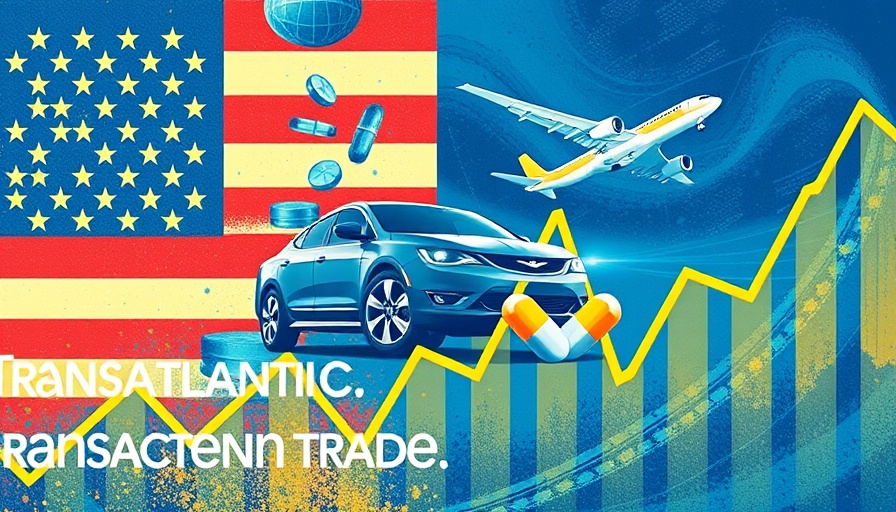
Impending Tariff Changes and Their Impact on EU Exports
As the U.S. threatens a staggering 50% tariff on European Union imports, the implications for businesses and trade relations are profound. With various sectors bracing for disruption, it becomes crucial to understand which products will be significantly affected and how European countries might respond.
Analyzing the Affected Sectors: What Exports are in the Crosshairs?
From automobiles to wine, it appears that high-value goods are set to take the brunt of this trade shock. The automotive industry, especially those exports from Germany - known for brands like BMW and Audi, could face crippling costs, potentially leading to steep price hikes for American consumers. Similarly, France's wine exports stand to suffer as tariffs could dramatically increase prices and curb demand in a saturated market.
Repercussions for Businesses and Consumers
With increased tariff costs, companies may need to pass these expenses onto consumers, leading to a potential spike in prices for American shoppers. Moreover, businesses that depend on cross-border supply chains face challenges, as the tariffs could lead to a chain reaction, increasing operational costs and complicating logistics. Economic experts foresee a shift where U.S. consumers might turn to domestic alternatives, impacting EU export revenues and overall market dynamics.
Future Predictions: Possible Outcomes from the Tariff Threat
Predictably, if these tariffs take effect, the EU's economy could experience a downturn, particularly in sectors heavily reliant on the U.S. market. Analysts suggest a potential for retaliatory measures from European countries, which could exacerbate trade tensions and lead to a full-blown trade war, impacting mutual economic growth significantly.
The Broader Picture: International Trade in the Context of Tariffs
This situation mirrors previous tariff disputes, such as the U.S.-China trade war, where similar tactics led to severe repercussions for both parties involved. The EU might explore alternative markets in Asia and Africa, shifting focus from traditional partners like the U.S. and diversifying their export strategy.
What This Means for Startups and Bay Area Businesses
For startups in the Bay Area, rising tariffs mean that the cost of imported goods might affect business models reliant on foreign supply. Tech industry updates are especially crucial here, as many corporations in Silicon Valley are interlinked with global supply chains. Watching these developments closely is imperative for entrepreneurs looking to pivot or adapt their strategies in real-time.
Strategies for Businesses to Navigate Tariff Changes
Companies can start preparing by reevaluating their supply chains, considering local alternatives, and potentially lobbying against the tariffs. Developing sustainable business practices and forging corporate partnerships might also provide cushioned impacts against economic downturns expected from such trade actions.
The Path Forward: Advocating for Corporate Governance
In light of these changes, advocating for responsible trade practices and engaging in corporate social responsibility becomes increasingly important. It's vital for businesses to consider their broader impact on both their markets and communities, particularly in challenging economic times.
The threat of tariffs imposes not just a fiscal barrier but a challenge to corporate culture, community health, and sustainable development in international trade. Business leaders must navigate these waters with a keen understanding of both local and global contexts, seeking opportunities amidst the turmoil.
As the situation unfolds, businesses must stay informed about trends and potential changes in the regulatory environment, adjusting tactics accordingly to ensure continued growth and effectiveness in these uncertain times.
 Add Row
Add Row  Add
Add 



Write A Comment